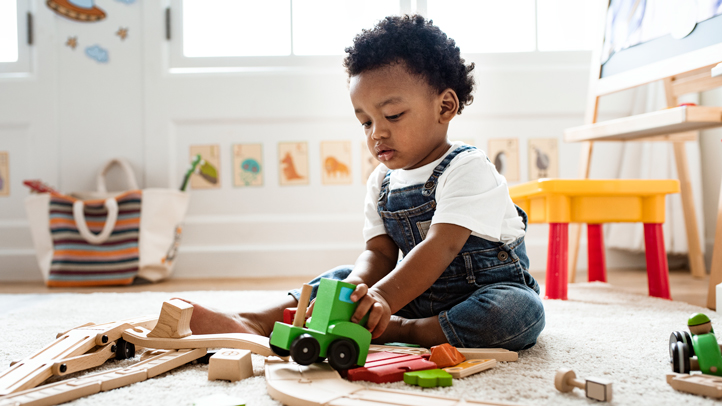It is excellent for your child to do many things by your side. Running errands, doing household chores, even cooking meals. However, there are times when you need to do tasks on your own, and independent play is essential for your toddler’s development too. As with many things in parenting, independent play is easier to talk about than to implement. If you are struggling to get your child to play independently, here are some simple tips to help you both learn this critical skill.
Remember That It Isn’t Your Job to Entertain
As a parent, it is easy to slip into the mindset of a cruise director. We make agendas, provide regular entertainment, and often even join in the fun ourselves. While it is a lovely idea to engage with your child in play, don’t forget that your child also needs time to be alone and explore her own thoughts. You are not hurting your child by taking time away for yourself. In fact, you are providing him with the space to be creative, thoughtful, and engrossed without interruption.
Be Together Without Playing Together
One excellent way to foster independent play is to share a space with your toddler while doing different activities. While your child might take time to adjust to this arrangement, soon she will understand that your companionship is present even if your attention is not. Show your child the activity you plan to do, such as reading, sewing, cooking, and writing. Then, ask him or her what activity they plan to enjoy. Expect that your child will come and want to join you. Remind them that you are busy, but that you will not leave and that you will stay nearby. This process will require more redirection for some children than others. Eventually, most children will catch on and be willing to play nearby without interruption for some time.
Develop Routines of Independent Play
A child will feel far more comfortable with independent play if it is an expected part of the daily routine. If your child knows that after lunch, each member of the family takes time to be alone, do their own task, and relax, he or she will be much more receptive when told it’s time to play alone. Even merely preparing them for solo play before it begins will give him the opportunity to be ready for the transition. Try the following technique: Say, “I’m going to read you two more books, and then I need to work in the kitchen while you play.”
Offer Choices When Possible
If you can, try offering your child a choice of how they spend their independent play time. It might mean offering to play in the room with you or in a different room. Alternatively, perhaps your child gets to choose the toys they use. Any time you can give your child control of his or her time, it is an excellent choice to do so.
Create a “Yes Space”
Toddlers are notorious for getting into trouble. It’s common to have concerns about your toddler playing independently because they often lack the self-control to play safely. Consider creating a “yes space” for your child. For example, everything in the special play space is available to your child. If there is furniture, they can stand on it. If there are toys, they can play with them or scatter them all around. This space may feel stressful to you; but it is a wonderful gift to your toddler. Best of all, it gives them time and space without correction and redirection.
Reserve Special Activities for Independent Play
If your child really struggles to enjoy her time away from you, reserve some special toys or activities just for that time. The Ridley Township Library has story time hours and many wonderful children’s books. After a day at the library, use the books you bring home as a special treat for independent play. You can do the same with building toys, costumes, or other open-ended toys you set aside just for solo use.
Encouraging a child to play independently can be a frustrating process, especially if they are used to you facilitating their play throughout the day. Yet, it is a worthwhile endeavor. Children who play on their own are creative, confident, and resilient. If you are looking for a childcare facility that encourages these same traits, consider Rising Stride Child Care Centers. With caregivers who encourage children to think creatively and independently, our facility is a place where children thrive.

